Google: A story of tying.
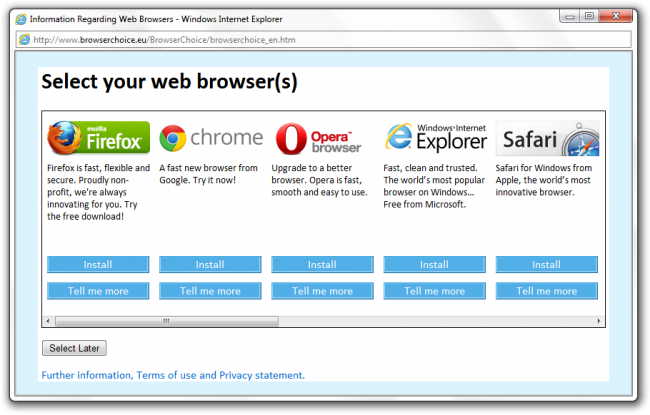
Let me start by saying I support many of Google’s efforts, it has pushed open source into the consumer space in many ways. But that shouldn’t fool you, we need market competition even in markets now dominated by open source software. Maybe you don’t think competition from Microsoft or Apple or Amazon is healthy if it reduces the share of open source products in a given market, but what about the inability of other open source projects to enter the picture? Anti-competitive behaviour not only keeps closed sourced alternatives out, it keeps open source alternatives out of the equation just as well.
Being dominant in one market shouldn’t guarantee dominance in other markets, that’s one of the basic principles behind the idea of functional markets.
It’s hard to pinpoint when Google abandoned its Don’t be evil motto and replaced it with its current Win at all costs. However is clear that Google has time and time again committed acts of anti-competitive behaviour, and not small ones. It has destroyed competition in several markets. Google systematically violates the mentioned principle. Its strategy? Classical tying.
What is tying?
Remember the big antitrust case USA v. Microsoft? I’m sure many of you feel the Department of Justice (DOJ) wasn’t hard enough on Microsoft, I’m sure many of you think it didn’t stop Microsoft from behaving anti-competitively. Yet, comparatively speaking, the government was incredibly active a decade ago. Microsoft was accused of tying Internet Explorer to Microsoft Windows to reduce competition on the web browser market and to gain a monopoly on internet access.
Tying is the art of the mandatory bundling of two or more products together. Of course, not every bundle is a case of anti-competitive practice, the bundle must fit the following criteria:
1. There has to be a tying product, i.e. a good people actually want and that can stand on its own, usually a product from a company with a ton of market power.
2. A tied product, another unrelated good, at the beginning it usually lacks relevance or consumer interest.
3. The only way to get the tying product is by acquiring it with the tied one.
In other words, it’s a way to leverage your dominance in one market to dominate a different one. More often than not the tying good is free of any meaningful competition, so consumers don’t have any choice but to have the tied good forced down their throats. Some of you may be aware of the antitrust case by the European Commission against Google or the rumours of the Federal Trade Commission (FTC) considering launching a case against Google. Both cases are mostly focused on Google’s latest tying efforts, namely the tying of Google+ to every Google product possible. That’s just the tip of the iceberg. The only reason people is starting to notice is because there’s a monumental block of ice below the surface, a block built entirely on tying practices.
Google: An empire built on tying.
Despite what government agencies seem to believe Google+ isn’t even close to being Google’s first tying effort. Let’s take a look at a few examples.
Maps
Say you type and search for something innocent such as “Manhattan 23 street”. What do you get? Do you get a list of results? Nope, you get first and foremost:
This has devastating effects on competitor’s alternatives, not only it directs people straight to Google’s own product, it also has the added effect of vanishing them from the results. OpenStreetMaps doesn’t appear in the first 20 pages (nor does any other mapping service). It hasn’t yet managed to get rid of Yelp and friends, but is not because Google isn’t trying. If you look for a restaurant a mix of Google+ and Google Maps is positioned at the sidebar to drive traffic into Google’s own services. For example, say we want to grab a slice at the famous Lombardi’s in New York City:
Google has pretty much obliterated other map offerings. Adding insult to injury it has recently dropped the price of using Google Map’s API to zero, a clear case of predatory pricing.
Google Images
If today a product does a better job at searching images than Google’s own offering does, it simply doesn’t matter. Because Google has also tied Google Images to Google Search, so no competitor stands a chance.
Google Finance
Search for a stock price, again, a list of results is not the first thing to greet the user. Instead he gets information directly from Google Finance. The first result is actually Yahoo Finance, at least for now…
Google Books
Let’s look for a true classic. You get the following on your sidebar, guess where it takes you when you click on the cover? To Google Books, which of course is unfair to other distributors (which don’t get this level of exposure).
Countless examples
q 200 pages long document could be written describing ways in which Google has abused its dominance on search. With the listed above and many more examples: Google Shopping, Google Places, Google Flight Search, Google News, Google Checkouts, Google Wallet, Google Analytics, Google Blogs Search, etc.
The shameless big tying story
Google+
Google+ is Google’s Social Network meant to compete with Facebook and Twitter. It doesn’t matter if you personally enjoy using Google+, you should realise Google is pushing its network in such an anti-competitive way that it would make Microsoft from the 90’s shiver of fear.
Tying it with Search
Of course, tying with search is a given considering Google’s past:
Clicking on the face of Facebook’s founder won’t take you to Facebook or to Wikipedia, it will take you straight into Google+, an empty profile with nothing but a single picture. What people on your circles visit or click +1 also appear straight on the results.
Tying it with Maps
Business on Google Maps are no longer just business entries, they’re Google+ places with their profile and all information moved there. Search for a place on Google Maps, click it and it will take to straight into its Google+ entry.
Reviews are now linked to your Google+ profile as well.
Tying it to YouTube
The most recent development was Google’s decision to overhaul YouTube’s comment system and replace it with one linked to Google+. Publicly Googled stated it was to improve the quality of comments. Let me tell you something very bluntly: That’s a lie. YouTube is incredibly popular. It has a community built around it already. By tying its comments to Google+ now every comment on YouTube results in activity on Google+, severely increasing traffic on the site. Notifications of replies to your comments no longer take you to YouTube, they get you get straight into Google+.
Suddenly I find myself spending a lot of time on Google+ and engaging in discussions. Google+ will end up tied with every Google property, it’s just a matter of time. In fact, Larry Page even tied the bonuses of all of Google’s employees to the success of Google’s social strategy.
Is there a way to solve it?
Google’s extensive anti-competitive practices should be put to an end. But how do we solve it? Well, turns out we don’t need to invent anything particularly revolutionary, we can essentially use the same method the European Union applied to Microsoft’s case:
For example instead of showing Google Maps by default when someone searches any address, Google should be forced to present a selections of alternatives, like OpenStreetMaps, Here, Bing Maps, etc alongside Google Maps and it should include local companies. The order should be randomised and the user should be able to set a default for future searches if he wishes to.
A similar approach can be used across the board. If you look for someone it should display a profile from Facebook, Twitter or what have you (or a mix of all). If you look for a book it should prompt you to choose a store, Amazon, B&N, Google Books, among all the others. This can be applied to most of Google’s tied products.
The YouTube situation, on the other hand, is harder to fix. YouTube comments should remain exclusive to YouTube and untied from other networks, perhaps with an option to connect using some social networks.
While I believe these are viable and reasonable ways to control Google’s monopolistic and anti-competitive efforts, the most important part is to protect the web from getting controlled by a single company. Just like we (and some governments) felt we couldn’t let Microsoft monopolise access to the web, we shouldn’t let a company monopolise the web itself.

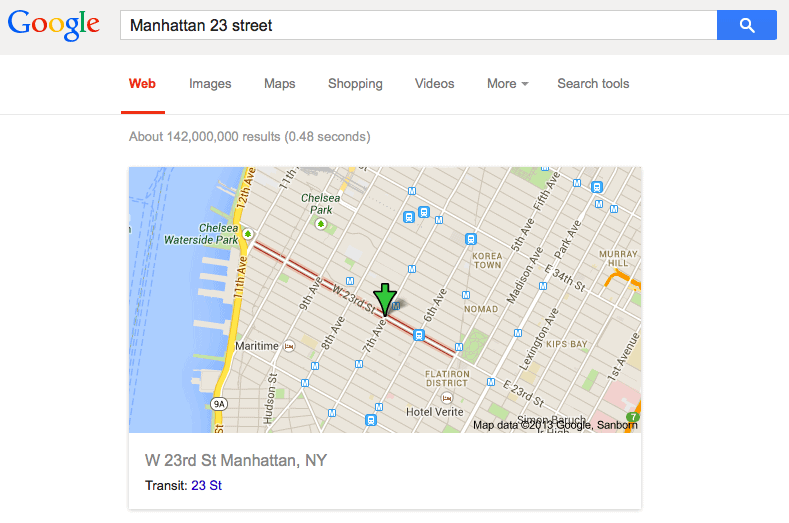
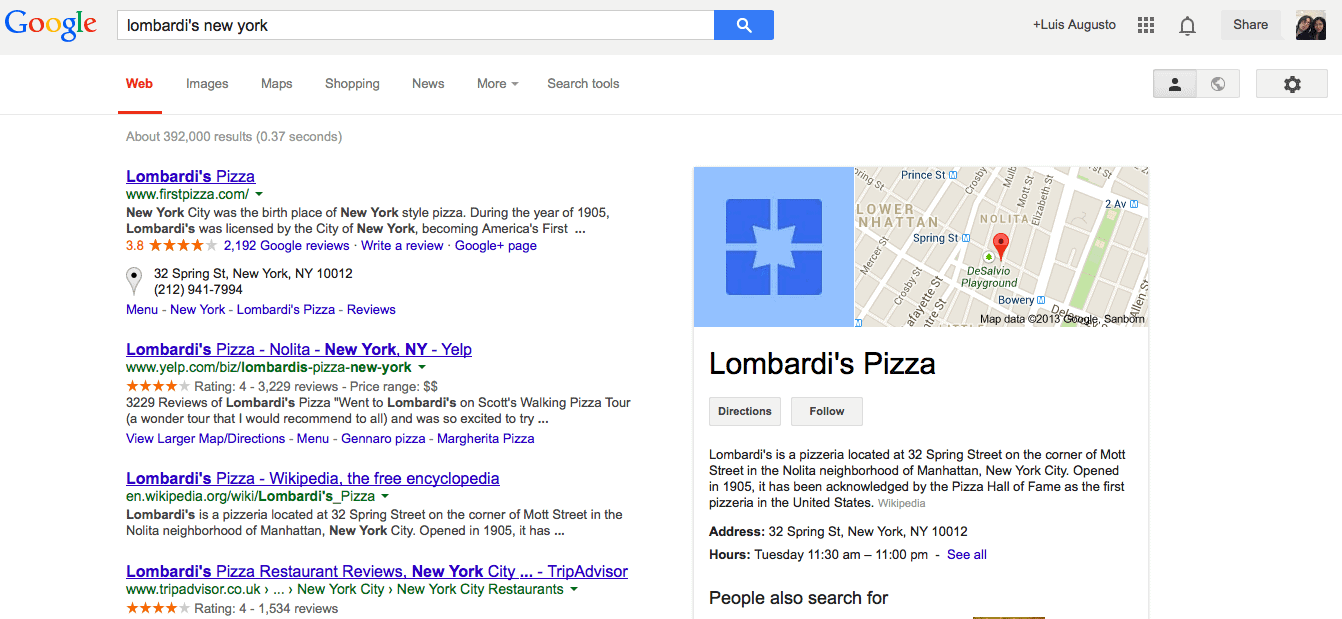
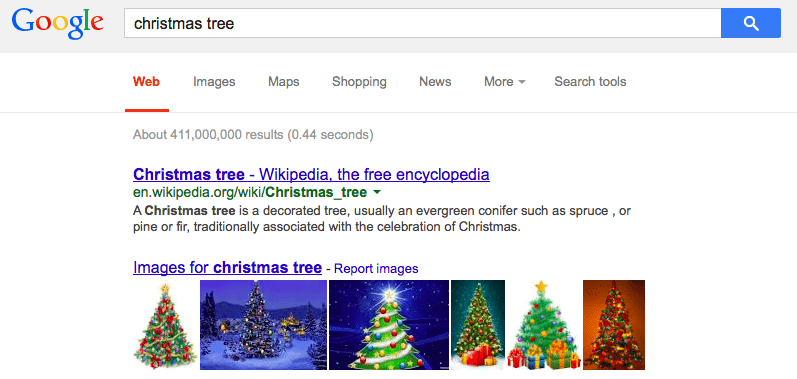
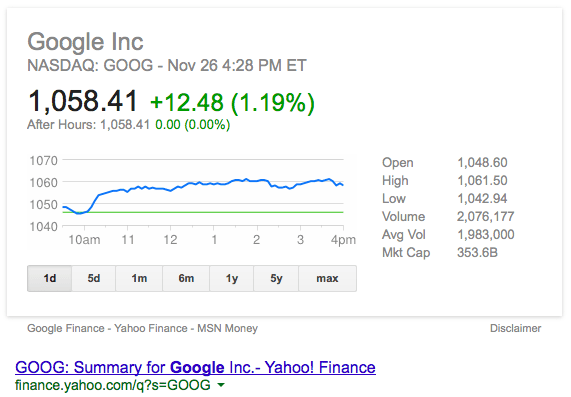

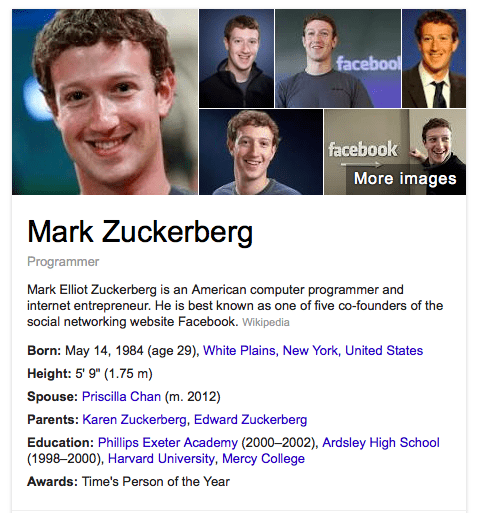
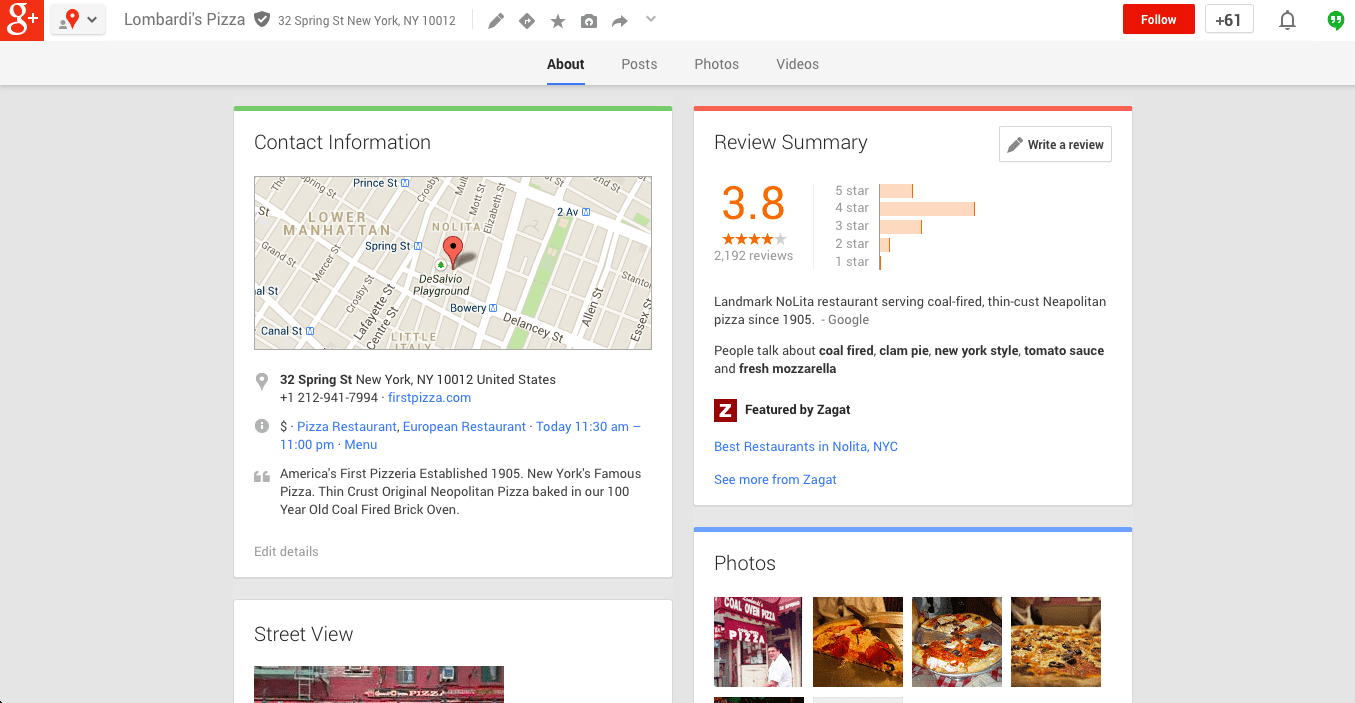
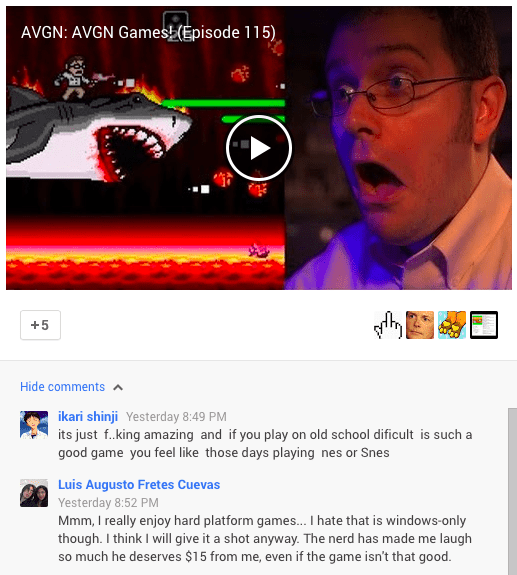
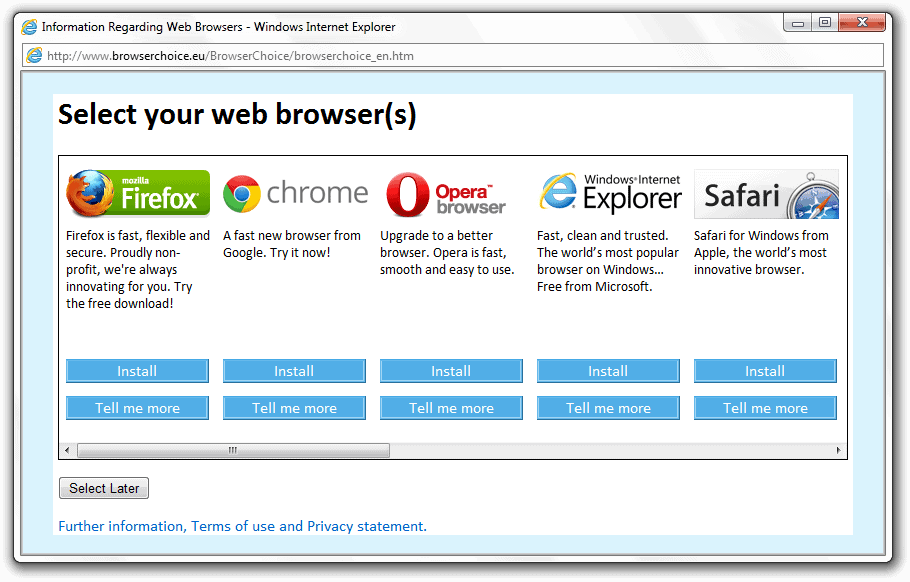
Unfortunately, all of this happens while you use Google services. So you cannot expect them to give you rival offerings, while you’re doing all of what you’re doing on their own pages, utilizing their electricity and compute power.
The only way to release fix it is: either stop using their services, but ask yourself does that better you in any way, or accept the fact the world has always been run and controlled by giants and that they do what they please. You can feel a little better about it by ranting now and then, as I do occasionally.
Cheers,
Dedoimedo
I don’t expect them to do it voluntarily, I’m suggesting governments should step in and forced them to (akin to how they force Microsoft with the browser ballot).
I think your position shits the blame to consumers. Market failures produced by the anti-competitive behaviour from some corporation, as well as it blames consumers from governmental failures like lack of intervention. Both which are not the consumers fault.
While I’m fairly used to everything being run by giants, as you say, I think is healthy to rant from time to time about it.
I had accepted that Google knew me inside and out, and made its money from using that info, but I always felt that the incredible convenience of Google products combined with the idea (apparently false) that I could use them without Google broadcasting my personal name across the web was destroyed when g+ hijacked YouTube and destroyed anonymity. Now I regard Google on the same level as a former lover who publishes intimate photos on a revenge porn site to make a few bucks. Like a jilted lover I am furious because I liked Google so much and now feel betrayed. So here I sit, doing nothing but raging uselessly about Google from behind a new, fake g+ identity, acting more like one of the dreaded YouTube trolls than the loyal user I was a few weeks ago. What a huge let-down.
There’s subtle difference that makes G’s case different from MS of the nineties. Everything google does relies on its cloud services that are nearly entirely hosted on US soil. This grant NSA constitutional and legal rights to inspect passing by traffic. Hence there will never be a USA vs Google case.
There’s no real nor viable alternative. Either you stop using G’s services as whole, and this includes all of its mobile goodies, or you are in, and everybody should be aware of it.